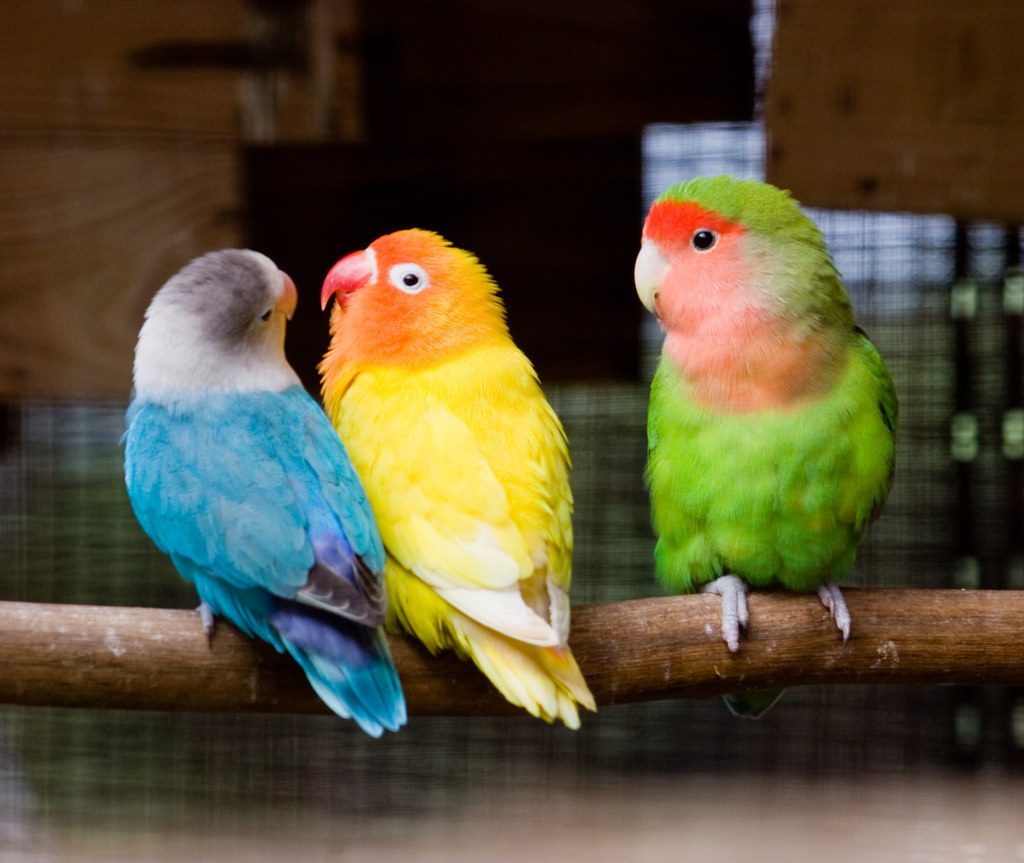There was a time in the U.S. when monogamy strictly meant staying with one person for life. Couples were expected to fulfill each other’s every need, including sexual, until death they parted. Now the concept varies. One couple’s idea of exclusivity can seem “monogamish” to another, depending on what freedoms you allow or embrace outside of the relationship.
What if no matter what freedoms a monogamous partnership might allow, you wouldn’t feel fulfilled? What if your idea of that proverbial “something more” involves not only more pleasure or connectedness, but more partners to experience them with? This tends to be the premise for non-monogamy—though the specifics there vary hugely, too.
Hmm… Can we say major gray areas??? (If you’re confused, definitely listen to the episode below!)
In my opinion, that’s a beautiful thing—the idea that love, sex and intimacy are not as black and white as the masses seemed to (and many still) believe. It offers us opportunities to explore our individuality, needs and desires, hopefully leading to the most precious kinds of relationships, no matter what the specifics: authentic ones.
Given that it’s less accepted in our society, non-monogamy is frequently misunderstood and attracts loads of misperceptions. Here are a few of the most common myths debunked—for anyone curious about the relationship style or who simply wishes to better respect it:
MYTH #1: Non-monogamy is an eloquent word for cheating.
Having intimate relations with another/others you and your partner haven’t agreed on is cheating, and definitely not monogamous. Ethical non-monogamy, however, is practically the opposite of cheating. You honor each other’s wants and desires by giving each other whatever freedoms you’ve set. (And as we’ve discussed in the last two Girl Boner® episodes, the specifics of these freedoms can vary greatly—within monogamy, too.)
When I interviewed Dr. Laurie Bennett-Cook, a phenomenal sex educator whose marriage is non-monogamous, she said she wasn’t sure what to make of it when her now husband first shared his disinterest in monogamy. It messed with her head a bit, she said, because she’d thought if you truly loved someone, you wouldn’t share them. Over time, however, she embraced an alternate view she’s maintained.
“It was more about loving me fully enough to let me completely be myself and express myself however with whomever feels good to me,” she said, “and he’s always been this anchor that’s been there.”
MYTH #2: Non-monogamy invites jealousy, big time.
Jealousy can occur in any relationship, whether you have one or multiple partners. Some monogamous folks wonder how anyone who allows sex or relationships “on the side” could not turn deep, envy green. But people who consciously choose non-monogamy aren’t known to argue about jealously more so than anyone else.
“Most couples, in a healthy non-monogamous relationship, where communication is taking place, when they do fight, they fight about the same things that everybody else fights about,” said Bennett-Cook.
Unless you’re non-monogamous solely to please a partner, versus for your own heart’s desires as well, or your partner tends to stray beyond the parameters you’ve set, you won’t run a high risk for jealousy. These types of issues cause riffs in any kind of relationship. In other words, the relationship style is not a jealousy magnet; those issues tend to run deeper.

MYTH #3: Non-monogamy is the most evolved choice.
Some people would never thrive in a monogamous partnership. Others find them deeply fulfilling. Still others delight in exclusivity for a while, then realize they’d rather shift toward non-monogamy. The reverse happens commonly, too.
Both non-monogamy and non-monogamy can be the ideal choice, or selected for not-so-healthy reasons. (I loved gabbing about this with Kait Scalisi, MPH recently!) What matters is finding what most fulfills you and your partner(s), and recognizing that these indeed are choices.
I adored what Bennett-Cook had to say on this. At orientation for the Sex Positive LA group she leads, people who identify as monogamous often say, “We’re not non-monogamous yet,” she said, as though that should be their goal, or a level of sex-positive awesomeness they haven’t yet reached.
“It’s important to remind people that there’s no hierarchy here,” she added. “There’s no, ‘We’re better than you and we somehow have this graduate level education because we’re so much more evolved.’ If you’re able to make things work between two people, between yourself—say you’re asexual or you just want to be by yourself for a while—or you have five partners. Whatever it is, as long as it’s ethical and it works for you and whomever you’re with, is the right one and the evolved one.”
Oh, so true! I couldn’t agree more, and hope you’ll tune into our chat for more on this subject. You’ll also learn about Bennett-Cook’s journey from law student to sex worker to her current career as a sex educator and counselor, her top communication tip for any relationship and her and Dr. Megan Fleming‘s wonderful advice for a listener who’s struggling with newfound knowledge that her husband is bisexual.
Listen on iTunes or here:
How do you feel about non-monogamy? If you’re non-monogamous, what other myth would you like to debunk? I love hearing from you!

Aaahhhh … you know how I think about this, August. Being faithful is most important to me in a relationship.
Worst is, if one IS in fact faithful, and the other one is not… that’s extremely painful and unfair.
But let me not go too deep into that.
I still love your post though!
Aw, yes I do know, AJ! Ethical non-monogamy definitely isn’t for everyone, and cheating tends to be hurtful no matter what. So glad you know what works best for you!
August,
Always wonderful to read on of your posts. I didn’t listen to the recording, but did read all of the post. This has been a subject that hits home and has had me thinking for quite awhile. My ex and I tried an open marriage to save ours and that didn’t work for several reasons.
However, I am now a part of the BDSM community (somewhere between a Dom and a Daddy Dom and I kept running into this issue. Many people in the community are non-monogamous. They seemed to enjoy it, so I asked and talked and thought and researched. All of this led to my looking within to see where I fit. Here’s where I am at this moment: I am on a line. I have embraced non-monogamy nearly 100% and do not find it abnormal or jealousy-ridden. I have some small issues with it (more of the disease possibility than anything), however, I let that one slide because there are other ways to help in that area. So, not finding it unethical or impractical, I am trying to embrace it as it seems wonderful. Currently, I have an interest in a person who is in a committed open relationship with someone else. She has an interest in me, so we will see what happens. I have lost most or all of my jealousies since my stroke; it seemed to turn that part off – well and good riddance. I just wanted to say that I know I could slip back to a monogamous relationship if that special someone came along.
The big thing I see is that my community is hit hard with screams of protest from the outside for that type of behavior, yet I see little problem being aimed at a single person who decides to “date” around, even when it involves sex with several partners. I am thinking bias here!
Scott
Sounds like you’re doing some very important exploring, Scott! You’re so right about judgment from folks who simply don’t understand. There should be no shame in embracing who we are, our desires and relationship preferences included.
I’m so glad to hear that you’re feeling more secure in yourself. Keep up the good work!
Loved this post, August!
As someone who has researched, and practiced polyamory and non-monogamy, for many years, I enjoy hearing how others are exploring it.
Thanks for your thought-provoking take on it!
Melita
censored2celebrated.com
That means so much, Melita, especially from someone who’s been living and researching it. Cheers!